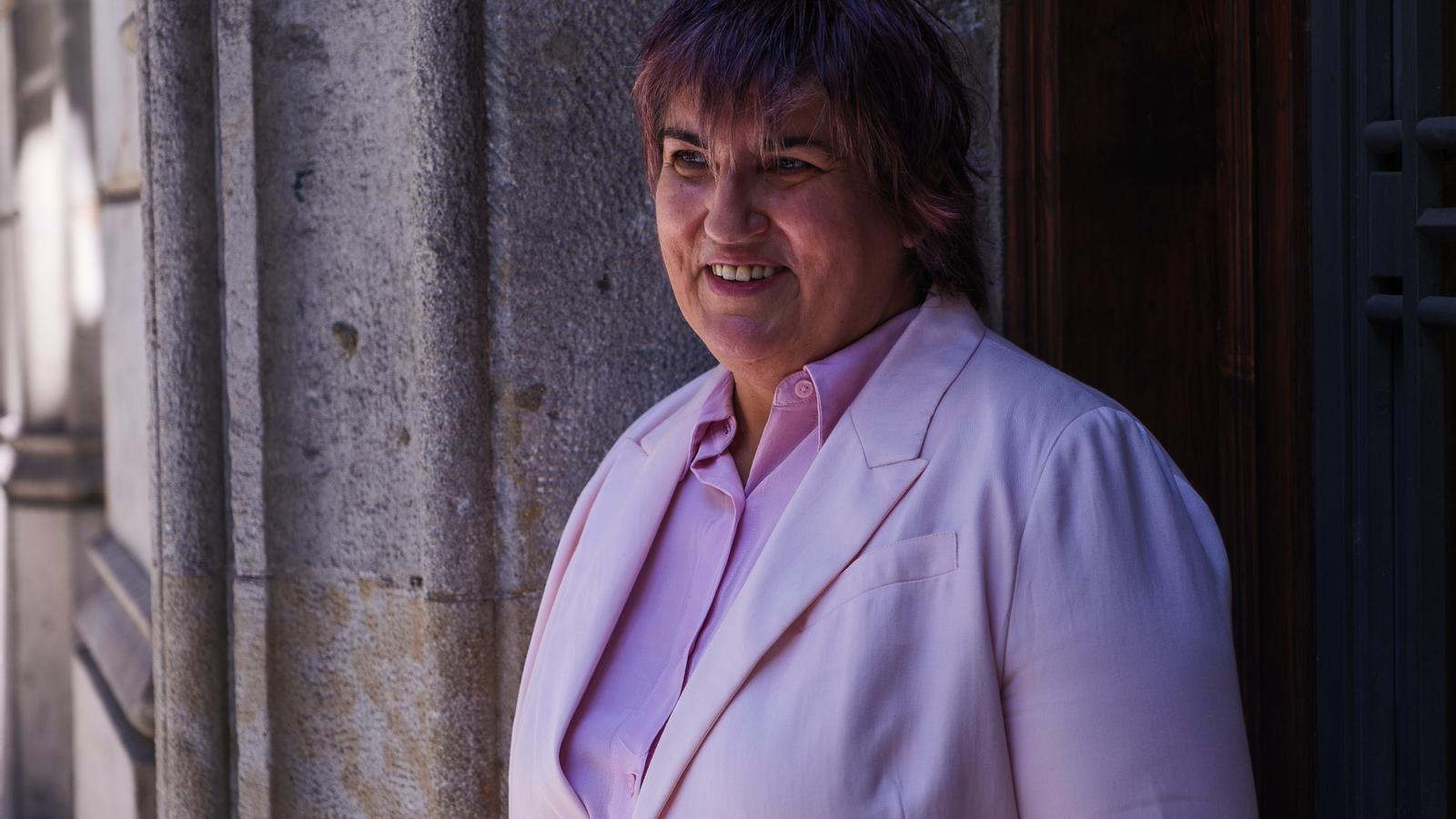Montse Barderi: "Aging allows you to discover the best part of your life."
The Sabadell-born writer reflects on identity, body, love, and aging in her novel "The Sea, Which Shines and Laughs."


Barcelona"Little by little I drown, stuffed with blue mussel jellyfish, segmented coral, shaved posidonia and overfishing: I grow irreversibly old." The narrator who Montse Barderi (Sabadell, 1969) has chosen the sea for his new novel, which speaks from our present and explains his fascination with a girl, Daniela, whose life he follows, full of obstacles and disappointments, until she reaches her full potential.
"This book began when my sister left her home to a mother and her two children, who were fleeing the war in Ukraine, and went to live alone in Calella de Palafrugell," he says. "From there she would call me every day and tell me things about her sea." Shortly afterwards, while he was in Caldes d'Estrac, a town in Maresme where Barderi spends his summers and many weekends throughout the year, he noticed "all about single, mature women walking along the sea." That's how the two protagonists ofThe sea, which shines and laughs (Column, 2025). The first is as unique as the salt water that covers three-quarters of the planet: "The sea can be God, life, or perhaps your hidden voice, which only comes out through necessity and after having accumulated a certain amount of experience," he comments. "It can be real as well as symbolic. In my case, considering that I was born, grew up and lived for a long time, I had the dream of being able to spend time in a nearby town, and finally it was Caldes, which Joan Maragall pays homage to the poem The Estrac pine, from which I have taken the title: "Above me I feel thousands of birds; and there the sea, which shines and laughs."
A new freedom
The second prominent character and narrative linchpin of the novel is Daniela. "She's a girl born in Peru who grows up here in a poor family," says Barderi. "From a very young age, she feels the aesthetic and social pressure to be different, and believes that the best way to stop feeling alone is the love of a partner." Daniela, however, isn't very lucky in relationships: "As young people, we have high expectations regarding love, and they tend to fail us," she continues. "As time goes by, the things you ask of a partner are generosity, respect, and thinking of one another. Perhaps the myth that it's true, but I don't have any, but I don't have any, but I don't have any, but I don't have any, but I don't have any, but I'm not afraid, but I'm not afraid of nihilism or indifference, but rather it allows you to find a new freedom."
Daniela ends up becoming a "cosmetic surgeon," but instead of dedicating herself to "improving bodies," she "repairs" them when they have suffered accidents or in case they suffer from malformations. "She realizes that to achieve a full life, the path towards autonomy is as important as finding a professional vocation or learning to relate satisfactorily with others," explains the author. Maturity is not accompanied by disillusionment, but by its plenitude. "Growing old allows you to discover the best part of life," admits Barderi. "One of the problems of our society is that it does not accept the ages of the human being. Girls are hypersexualized too soon, young people want to grow up quickly... and when we get older, it turns out that we cannot be satisfied with our image, but rather we have to stop not operating. Life is being able to marvel at every stage."
Since she debuted with Losing for winning (Ara Llibres, 2007), Barderi has published twelve other books, including The memory of water (Columna, 2019), winner of the Prudenci Bertrana Award. "At this stage of my life, I see many things coming," he says, "but it's important to realize that you don't know everything and to let yourself be surprised."
